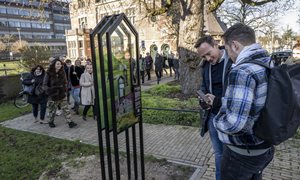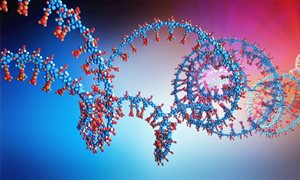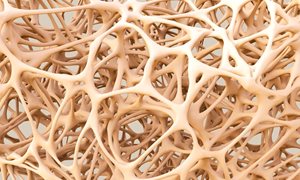
To take AI development in pathology to the next level, a European consortium combining leading European research centres, hospitals as well as major pharmaceutical industries, is going to develop a repository for the sharing of pathology data. The project, coordinated by Jeroen van der Laak and Katrien Grünberg from Radboud University Medical Center, The Netherlands, is called BIGPICTURE. With its 6-year duration and €70 million investment, it will herald a new era in pathology.
Pathology is the cornerstone of the workup of many diseases such as cancer, autoimmune diseases, of the follow up after transplantation and is also critical for the evaluation of the safety of drugs. It’s based on the examination of tissue samples (slides) under the microscope. However, despite its pivotal role, it still relies heavily on the qualitative interpretation by a qualified pathologist.
While the microscope symbolizes the profession, the digitalisation of slides in recent years ignited a revolution: not only images can now be shared and accessed from distant locations, they can also be processed by computers. This opens the door for artificial intelligence (AI) applications to assist the pathologist and help study diseases, find better treatments and contribute to the 3Rs (replace, reduce, and refine animal use in research). However, the development of robust AI applications requires large amounts of data, which in the case of pathology means a huge collection of digital slides and the medical data necessary for their interpretation. Sharing these has so far remained challenging due to the data storage capacity required to host a sufficiently large collection and to concerns regarding the confidential character of the medical information.
To allow the fast development of AI in pathology, the BIGPICTURE project aims to create the first European, ethical and GDPR-compliant (General Data Protection Regulation), quality-controlled platform, in which both large-scale data and AI algorithms will coexist. The BIGPICTURE platform will be developed in a sustainable and inclusive way by connecting communities of pathologists, researchers, AI developers, patients, and industry parties.
The project is divided into four main aspects that concern the large-scale collection of data. First, an infrastructure (hardware and software) must be created to store, share and process millions of images that can be gigabytes each. Second, legal and ethical constraints must be put in place to ensure adequate usage of data while fully respecting patient’s privacy and data confidentiality. Then, an initial set of 3 million digital slides from humans and laboratory animals will be collected and stored into the repository to provide data for the development of pathology AI tools. Finally, functionalities that aid the use of the database as well as the processing of images for diagnostic and research purposes will be developed.
BIGPICTURE is a public-private partnership funded by IMI, with representation from academic institutions, small- and medium-sized enterprises (SMEs), public organisations and pharmaceutical companies, together with a large network slide contributing partners. The consortium partners involved in the project are:
Academic institutions: Radboud University Medical Center (NL), Linköping University (SE), Leeds Teaching Hospitals NHS Trust (UK), University Medical Centre Utrecht (NL), Uppsala University (SE, ELIXIR node), Haute Ecole Spécialisé de Suisse Occidentale (CH), Eindhoven University of Technology (NL), University of Warwick (UK), Technical University of Munich (DE), Medical University Graz (AT), Institut Pasteur (FR), University of Liege (BE), University of Semmelweis (HU), National Cancer Institute (NL), Region Östergötland (SE), Medical University Vienna (AT), University of Marburg (DE), Helsingin ja Uudenmaan sairaanhoitopiirin kuntayhtymä (FI),
Pharmaceutical companies: Novartis Pharma AG (CH), Janssen Pharmaceutica NV (BE), Bayer AG (DE), Boehringer Ingelheim International GmbH (DE), Novo Nordisk A/S (DK), Pfizer, Roche (CH), Sanofi Aventis recherche et Développement (FR), Institut de Recherches Internationales Servier (FR), and UCB Biopharma SRL (BE).
Other public & private organisations: CSC – IT Center for Science Finland (FI, ELIXIR node), Biobanks and biomolecular resources research infrastructure (AT), Azienda Ospedaliera Per L’Emergenza Cannizzaro (IT), Fraunhofer-Gesellschaft zur Förderung der angewandten Forschung e.V.(DE), Deutsches Institut für Normung E.V. (DE), European Institute for Innovation through Health Data (BE), European Society of Pathology (BE), Digital pathology association (US), GBG Forschungs Gmbh (DE), ttopstart (NL), Sectra AB (SE), Cytomine SCRLFS (BE), Stichting Lygature (NL), Owkin (FR), Deciphex (IE), MedicalPhit (NL), Timelex (BE),
BIGPICTURE starts on 1st February 2021 and will run for 6 years. However, the platform is meant to last, and the consortium will elaborate sustainability plans to maintain and continue to develop the platform beyond this term.
Acknowledgement of support and disclaimer
This project has received funding from the Innovative Medicines Initiative 2 Joint Undertaking under grant agreement No 945358. This Joint Undertaking receives support from the European Union’s Horizon 2020 research and innovation program and EFPIA. www.imi.europe.eu
This communication reflects the consortium’s view. Neither IMI nor the European Union or EFPIA are responsible for any use that may be made of the information contained therein.




-
Want to know more about these subjects? Click on the buttons below for more news.
Related news items

First artworks of art route unveiled Enjoy the Walk of Wonder on the Radboud Campus
4 April 2023The first two artworks - 'Carry' and 'Help' - of the Walk of Wonder Art Route have been unveiled. The other five will follow throughout the year. The route is accessible to everyone and stimulates all senses. The Radboud University and the Radboudumc invite you to enjoy this Walk of...
go to page
Hidden genetic defects contain real risks for serious diseases Genome test for consanguineous couples makes sense
19 March 2021 For the first time researchers from Hebrew University of Jerusalem, Radboudumc, Maastricht UMC+ and international colleagues have gained insight into the "hidden genetic defects" of the general European population. go to page
Researchers grow most lifelike bone organoid to date Greatly increasing our understanding of bone formation and bone diseases
9 March 2021 Researchers from Radboudumc and Eindhoven University of Technology have interwoven various bone cells into an 'organoid' that can independently make new, hard bone tissue. It’s the most complete 3D model of bone formation to date. Peaked your interest? Read more! go to page
A genetic patch to prevent hereditary deafness Research in Radboudumc shows that a therapeutic approach for DFNA9 can work
3 March 2021 They can hear well up to about forty years old, but then suddenly deafness strikes people with DFNA9. The cells of the inner ear can no longer reverse the damage caused by a genetic defect in their DNA. Researchers at Radboud university medical center have now developed a “genetic patch” go to page
Does the COVID-19 cytokine storm exist? Research may have an impact on the chances of success of a specific treatment
4 September 2020 Following the measurement of several important cytokines in patients with COVID-19 and various other severe diseases, researchers at Radboud university medical center now show that COVID-19 is not characterized by a cytokine storm. go to page